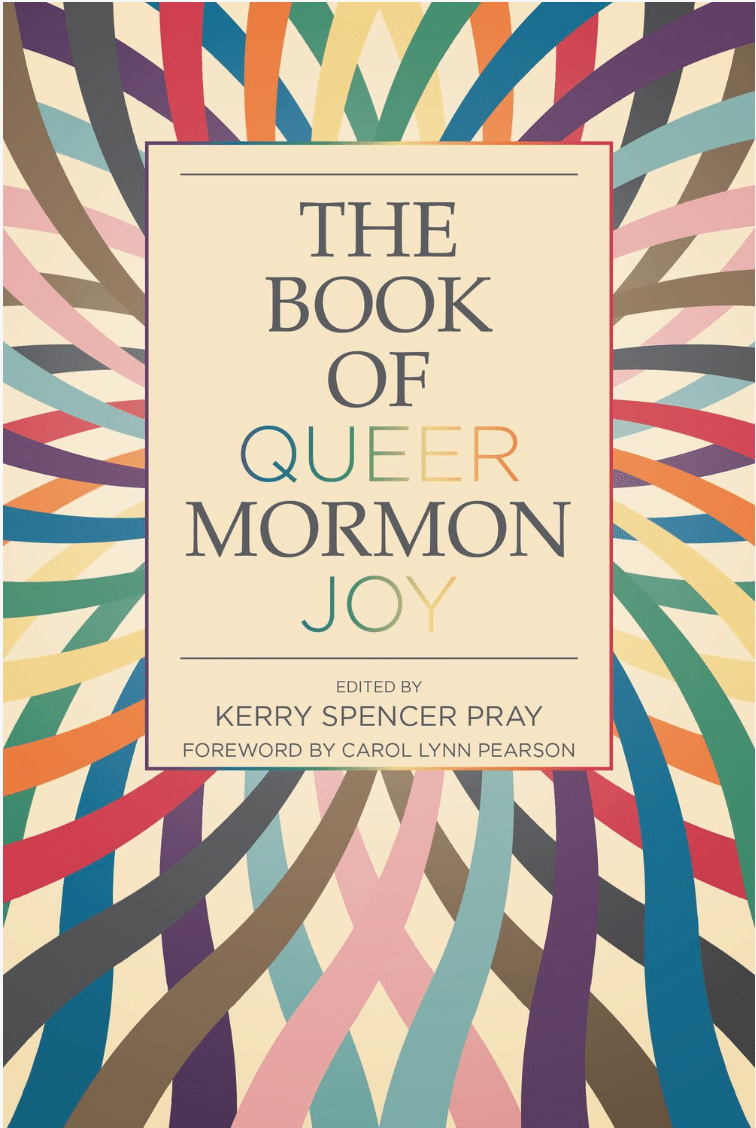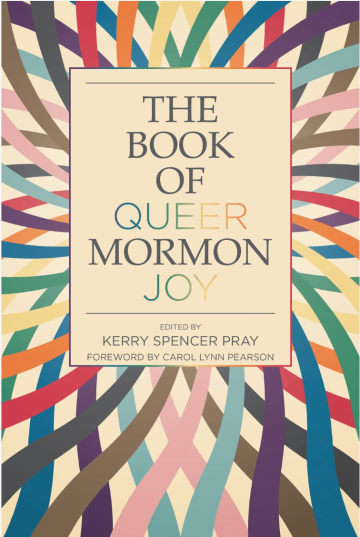Kerry Pray’s new edited volume: The Book of Queer Mormon Joy is now available through its publisher Signature Books and other booksellers. I sent her a list of questions and here is what she told me about her new book.
NR: How do you usually introduce yourself in Mormon spaces?
KP: Introducing myself in Mormon spaces was a good deal trickier before Nelson was the prophet! I married a woman before the repeal of the POX, which at the time meant mandatory excommunication. (My local leadership conveniently forgot to make this happen and I did not remind them.) “Ex-Mormon” never felt quite right because you don’t actually stop feeling Mormon when you have been one your entire life! It’s your culture and your heritage and where you come from. I tried post-Mormon for a while. But after Nelson made “Mormon” a forbidden word it got a whole lot easier because Mormon no longer necessarily referred to membership in the institutional church, which I no longer consider myself a part of. So now I tend to call myself a queer Mormon, which suits me.
NR: Your previous book, I Spoke to you with Silence, was beautiful and devastating in the best/worst ways. Your new book, The Book of Queer Mormon Joy, clearly celebrates joy. Can you tell me more about your journey with these two books? What made you want to write this second volume?
KP: Jenn Lee Smith and I put the previous book together because we both had felt its absence. When I was deciding whether or not to come out, to leave my mixed orientation marriage, to leave the church, I looked everywhere I could for stories, for anyone who could offer guidance. I knew literally one lesbian I could reach out to and ask questions and she was not Mormon. She introduced me to Affirmation, where I met Jenn and immediately bonded. Jenn and I talked about how we had found a few stories about gay Mormon men, but we just couldn’t find very many of the other stories. And we were so desperate for them. Jenn had actually been trying to collect them for years. She asked me to help turn them into a form that would bring them to other people and preserve them, so that no one had to have the same experience we did and that there would always be something out there for them to find when they went looking, desperate to find out they weren’t alone. The two things that were the most important to us were that we give a voice to the people who didn’t have one and that we tell the truth. But the problem with the truth is that it is heartbreaking. There is so much sorrow and pain in the queer Mormon community. It weighed on us and publishing the book took a toll that we didn’t expect. And so when Barbara Jones Brown from Signature asked about putting together another book, I knew that it had to do more than simply tell the truth: it had to help create a new truth. Because our lives can be joyful and beautiful and hopeful and wonderful. But it is a choice you have to make. And it is not always an easy one.
NR: What do you want readers to get out of this new book? Is there a kind of argument that these essays make about queer Mormon joy?
KP: If there is an argument about joy that this book makes, it’s this: take it. It’s yours. It belongs to you. Don’t wait for it. Don’t contort or bend yourself to fit to rules written by those who don’t understand you. God is big enough, whether or not the church is. Mortality is heavy and hard, and it’s even harder when you are different. But difference can be joyful when we let it be. The long arm of history may or may not make room for those of us on the outside in our lifetimes. But in the meantime we can laugh and sing and dance and be.
NR: What has this book mean to you? What drove you to tell these stories?
KP: Putting these stories together was healing for me, personally. I started out in a broken sort of place, weighed down by the sorrow and struggle and sense that it was never going to be enough. But I kept editing and kept writing, pass by pass, essay by essay. And by the end I was surprised to find the broken edges inside me had started to heal–to turn into laughter and celebration. Joy is an act of defiance for queer people. We know people don’t want us to exist. We know they find us odd and viscerally upsetting. We know they are unsettled, squicked out, distressed. We celebrate anyway. Because we are, as we are. And we are good.
NR: Is there anything from Mormonism that you still hold onto or that is still meaningful to you?
KP: I don’t know that I’ll ever stop being Mormon. It’s baked deep into you. As a queer person one thing about Mormonism I actually found very helpful was knowing–however strenuously they currently object–that marriage doesn’t actually have to look one way. Families can be complicated and different. Maybe you have a husband and another wife! God delights in variety and God wants you to choose for yourself. Mormonism taught me that, and it’s something I hold very dear.






3 Responses
I am looking forward to reading this!!! “I Spoke to You With Silence” was heartbreaking and beautiful and made me cry multiple times and I would 11/10 recommend.
Hard agree! It was such a beautiful and devastating book.
So glad this book exists! Can’t wait to read it.